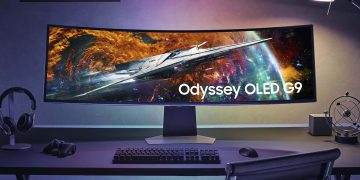Handheld gaming devices have carved out a legendary legacy within the gaming universe over the years. Though a handful of portable consoles made their mark before, it was Nintendo’s Game Boy that truly revolutionized mobile gaming, offering near home-console experiences away from the living room. Nintendo continued to dominate the handheld sector with successive Game Boy models, and set the industry on a high-octane path in 2006 with the groundbreaking Nintendo DS. While PlayStation has dabbled in handheld endeavors, Xbox, on the other hand, has traditionally played it safe by steering clear of this competition. However, that is set to change soon.
After more than a year filled with swirling rumors and anticipation, Phil Spencer shed light in an interview with Bloomberg that Xbox is indeed chipping away at creating its first handheld device. He did, however, caution that it’ll be some years before it becomes a reality for eager fans. Nevertheless, there’s a particular feature bound to make this future Xbox handheld stand out from the crowd when it does join the fray.
The landscape of handheld gaming is more bustling than ever. The Nintendo Switch, a dominant force in its seventh year, along with its smaller Lite and advanced OLED variants, has surpassed selling 140 million units. Despite its relatively modest hardware compared to current and previous generations of PlayStation and Xbox consoles, the Switch’s handheld convenience, solid brand recognition, and family-centric offerings have kept it leading the gaming charts for nearly a decade.
Valve threw its hat into the handheld ring back in 2022 with the Steam Deck. Over the last two years, it’s been lauded as one of the premier handheld gaming systems, capable of playing cutting-edge games with minimal limitations.
As time rolls on, and before Xbox’s handheld hits the shelves, the handheld market might see some shifts, but perhaps not drastic ones. The anticipated successor to the Nintendo Switch is slated for a reveal next year, and Valve has already announced work on a second Steam Deck is in progress. So even if Xbox decided to launch its device now, its competition might not look much different in the near future.
Moreover, a recent Bloomberg article hints that PlayStation could also be venturing once again into the handheld territory. If this holds true, Xbox will indeed face some serious competition upon launching its own handheld device.
A big card up Xbox’s sleeve could well be its Game Pass subscription service—a powerful asset that Xbox has been promoting beyond just their consoles. In the past year, Xbox has emphasized that its brand extends to anything capable of operating the Xbox app, with Xbox Game Pass being a pivotal component of this narrative. Commercials frequently spotlight gamers engaging with Game Pass on consoles, PCs, mobiles, and more through Cloud streaming technology.
When Xbox finally unveils its handheld, it’s highly anticipated that Xbox Game Pass will be a defining feature, offering a significant draw for gamers. In the short run, those who purchase Xbox’s handheld will gain access to an expansive collection of games at no extra charge, immediately putting their new device through its paces with countless AAA and indie options, all primed from day one.
Looking toward the future, Xbox Game Pass promises to keep handheld users immersed in an ever-evolving library of titles. Although a potential PlayStation handheld might offer its suite of PS Plus titles, Xbox Game Pass stands to maintain a competitive edge—especially since PS Plus doesn’t release first-party games on launch day. And with Xbox’s growing first-party lineup composed of Xbox Game Studios, Bethesda, and now Activision-Blizzard, this advantage only seems poised to grow.













































